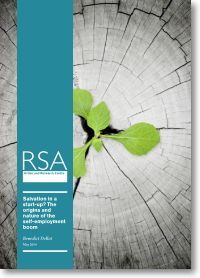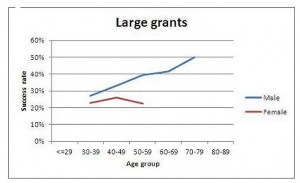Leaving the opera in the year 2000!

A wonderful vision of city and cultural life, imagined in 1882. Even in the 21st century it is hard to contemplate leaving a cultural event in a city, stepping into your floating air carriage and drifting off home in ease and solitude.
Even after the most vigorous Tannhauser at the ![]() Royal Opera House, a trip on the Northern Line to return to the solace of High Barnet bears no comparison.
Royal Opera House, a trip on the Northern Line to return to the solace of High Barnet bears no comparison.
We have not given up on the city yet, though.
Our recent Fellows Annual dinner in the East of England was held in the surroundings of ![]() Emmanuel College in Cambridge. Dating from 1584, the original Dominican Priory has been embraced by later buildings, yet Fellows were able to hear an entertaining and informative after dinner talk by Matt Lane, Head of the Royal Opera House site at Thurrock, the
Emmanuel College in Cambridge. Dating from 1584, the original Dominican Priory has been embraced by later buildings, yet Fellows were able to hear an entertaining and informative after dinner talk by Matt Lane, Head of the Royal Opera House site at Thurrock, the ![]() Bob and Tamar Manoukian Production Workshop, where ROH productions are built and delivered to cities.
Bob and Tamar Manoukian Production Workshop, where ROH productions are built and delivered to cities.
The conversation also ranged across the occasion of the region’s forthcoming conference at the University of East Anglia. The programme for which includes Norwich Fellows session on Empowering Invisible Norwich and another on What is a Learning City? So although we will not arrive by hover car, the idea of the city will continue to echo.
Extending the city:
Writing just before the start of this century Peter Hall, in his book Cities in Civilisation – Culture, Innovation and Urban Order ( Weidenfeld & Nicholson, London, 1998) was minded that…
At the turning point between the twentieth century and the twenty-first, a new kind of economy is coming into being, and a new kind of society, and a new kind of city: some would say no city at all, the end of the city as we know it, but they will doubtless prove wrong…
Hall goes on to develop his argument about societal change and stresses the enormous impact of technology on urban dwellers across the globe. This is true, but the forecasts of the end of the city have proved somewhat premature.
In fact, the building, or extending of cities, continues to be a hot political issue. For the forthcoming report by Sir Michael Lyons there is an indication that he will recommend that cities should be allowed to expand at their edges, a return to the New Town concept perhaps. With councils free to borrow and invest in house building and bringing reform of land release for house building to the table.
This latter point outlines how strong the the High Victorian concept of urban spread as an entirely bad thing remains. Surely the point is what sort of urban extension or city growth you achieve. We must not build urban ‘rookeries‘, or blanket ‘Bedford Brick‘ box extensions across acres of green fields either, we would argue.
Land release for social housing or city corporation development will be a thorny issue for private landowners, what ever the political persuasion of the originating idea, we suspect. You can see this debate outlined in more detail in a recent article from Patrick Wintour in The Guardian here.
Farming the city:
Using existing infrastructure in conurbations for innovative purposes is immensely appealing. Using it to farm, to develop new urban and social businesses based on food, new flowers and green space cultivation is a great way to deliver new skills, better diets and employment into communities, we would argue at conversationsEAST.
Robida in 1882, or Hall in 1998, could not have imagined the Massachusetts Institute of Technology ![]() MITCityFARM project.
MITCityFARM project.
“As part of the City Science Initiative at the MIT Media Lab, we explore the technological, environmental, social and economic design of scalable systems capable of producing affordable and high quality food in the heart of our future cities”.
If you have an interest in this green aspect of the debate an on-line visit to MIT is worth it. The MITCityFARM team are working in three key areas.
- Re-thinking the ‘grow it there, eat it here’ agenda
- reviewing the ‘urban infrastructure facade’
- developing global open access course-ware, to make knowledge about agriculture available to all.
In the East of England, the agricultural heartland of the UK, arguably, there must be Fellow’s projects that can be blended into delivery of vertical gardens, rooftop farms or the reclaiming of industrial and derelict sites for community owned small holdings or gardens? (Write to the Editor, let us know, we’ll do a feature…Ed.)
The edge of the city, in the city garden:
A blending of city growth concepts and urban farming/community greening agendas come together in the now, with the recent release of the short list for the ![]() Wolfson Economic Prize.
Wolfson Economic Prize.
The Wolfson Prize team undertook research to see what sort of urban development was uppermost in people’s minds. The Garden City was by far the most popular ‘civic choice’ of growth mechanism. Simon Wolfson talks about the design choice in this short film below…
Consequently, the five prize shortlist contenders have been asked to submit designs for a new Garden City. You can see the individual practices in competition here.
In conclusion, maybe the time is now right. We have innovative thinking on edge development, an energised architectural sector with modern materials and community sensibility, coinciding with increased interest in city farms and Garden Cities from the civitas.
Who cannot have an optimistic view of our cities?




